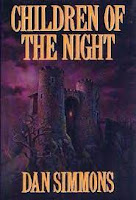For those who read The First Heretic by Aaron Dembski-Bowden, fourteenth book in the Horus Heresy series, they will remember that the story kicks off with the Emperor sending the Ultramarines to Khur, the Word Bearer's home planet, to cleanse it of abomination, i.e. raze it. The Word Bearers in disbelief, they seek the darkest roads to understand how they fell out of favor with the Emperor, and ultimately are sucked into Horus' rebellion through their seeking. Know No Fear by Dan Abnett (2012), a book-long battle, tells of their revenge on the Ultramarines—at least its first chapter.
The architects of Horus Heresy fiction have done their best to change up the formula with each book so that the series does not devolve into repetitive bolter porn. Know No Fear follows the lead and changes things up by offering a book length battle. A battle from beginning to end, it tells of the destruction of the planet Calth. On top of this, Abnett writes in the present tense to give a sense of urgency and action to the scenes. And further still, the narrative changes point of view many, many times, giving readers a massive, widescreen view to the downfall of Calth.
















